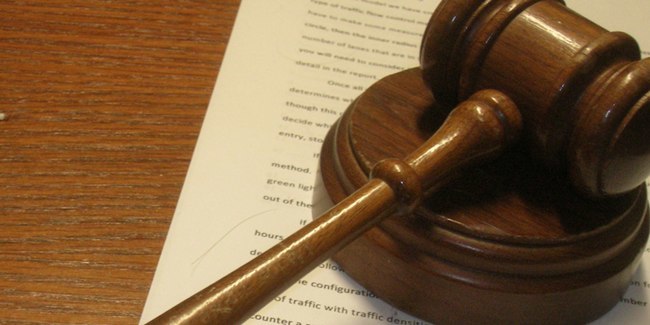Changes to Scotland’s justice system forced by a landmark human rights ruling will cost the public purse more than £30 million, it has been claimed.
Emergency legislation to give suspects automatic right of access to a lawyer was passed by the Scottish Parliament on Wednesday by 97 votes to 18 after the Liberal Democrats opposed it.
MSPs agreed to rush through the changes after the UK Supreme Court ruled the Scottish system allowing people to be held for six hours without access breached the European Convention on Human Rights (ECHR).
Justice Secretary Kenny MacAskill said the law change had been forced on the government and “threatened the High Court’s supremacy”.
Labour’s community safety spokesman James Kelly said the financial impact of the changes would have “serious implications” for Scottish police forces.
The bill will extend the existing maximum six-hour detention period to 12 hours with the possibility of a further extension to 24 hours, and it will take 144 police sergeants and 336 constables to staff the new system. Mr Kelly said it would cost almost £20 million a year in wages alone.
“This bill will not only have huge implications for Scotland’s courts but the bill’s financial memorandum makes it clear it will also have serious implications for Scottish police forces,” he added.
“Along with a £20 million ongoing yearly cost there is also a set-up cost of £7 million as well as legal aid costs of £4 million. We need a full impact assessment of what this will mean for Scottish police forces and in particular the impact on frontline policing.
“The Scottish Government have been aware of this judgment for a long time and Parliament needs to know what plans are in place to mitigate its influence on the Scottish justice system.”
Mr MacAskill said the bill was necessary to ensure the continued smooth running of the Scottish legal system. It is worth noting at this point that the idiosyncrasies of the Scotland Act mean that Scotland is uniquely susceptible to the effect of ECHR challenges in criminal cases,” he said.
“Normally in criminal matters the Scottish Court of Appeal has the final say, but this route of raising devolution issues is undermining their final authority.
“I will be making clear to the UK Government our view that the centuries-old supremacy of the High Court as the final court of appeal in criminal matters must be restored.”
First Minister Alex Salmond said in normal circumstances if the Supreme Court rules against someone, they would have recourse to the Strasbourg court where the case could be argued in full.
He told Labour’s Pauline McNeill that no one had envisaged the Supreme Court would have been used in appeals for criminal cases to “second guess” the Scottish Court of Session.
Mr Salmond said, “No one envisaged that not Donald Dewar it’s an unintended consequence. That’s what is wrong.”
The Liberal Democrats brought forward amendments aimed at tightening the safeguards surrounding the extensions to the time suspects can now be held without charge.
“This is a criminal statute,” said Lib Dem justice spokesman Robert Brown. “It allows the prosecution authorities, the police in particular, to lock up people for longer than they were hitherto able to do.
“There may be good cause to do that, but it should not be done without careful consideration.”Amendments rejectedHowever, the series of amendments lodged by Mr Brown were rejected.
Mr MacAskill said “appropriate safeguards” would be in place, but that advice had been given to extend the time.
Tory justice spokesman John Lamont said the consequences of the changes would be “far reaching” and also drew attention to the financial impact.
“The cost to the public purse will increase significantly and I know that the police fear our conviction rate will be compromised,” he said.
“It has also significantly shifted the balance of our justice system in favour of the criminal rather than the victim and the law-abiding majority in Scottish society. Scottish Criminal Law will never be the same again.
“Scotland has lost control of its criminal justice system. This is not as a result of the decision of the UK Supreme Court but because of the decision of the other parties to incorporate the European Convention on Human Rights into Scots Law through the Scotland Act.”
The Supreme Court ruling was prompted by the test case of Peter Cadder, who was convicted last year at Glasgow Sheriff Court of two assaults and breach of the peace based on interview evidence.
The Scottish Government said up to 3400 cases could be affected by the judgment of the UK’s Supreme Court.
Lord Carloway, a senior High Court judge, is also due to carry out a review of Scottish criminal law and practice in the aftermath of Tuesday’s decision.
The changes are expected to gain Royal Assent by the end of the week.
Image used under Creative Commons licence courtesy of Flickr user steakpinball.
